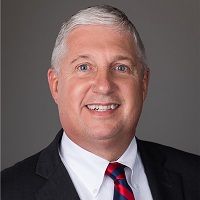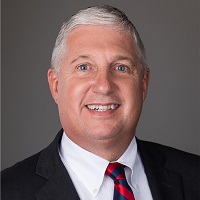Four Steps to Help You Hit Your Magic Number for Retirement
Americans feel they need $1.46 million to retire comfortably. The good news, if you're falling short, is you might not need that much to reach your individual retirement goals.


Profit and prosper with the best of Kiplinger's advice on investing, taxes, retirement, personal finance and much more. Delivered daily. Enter your email in the box and click Sign Me Up.
You are now subscribed
Your newsletter sign-up was successful
Want to add more newsletters?

Delivered daily
Kiplinger Today
Profit and prosper with the best of Kiplinger's advice on investing, taxes, retirement, personal finance and much more delivered daily. Smart money moves start here.

Sent five days a week
Kiplinger A Step Ahead
Get practical help to make better financial decisions in your everyday life, from spending to savings on top deals.

Delivered daily
Kiplinger Closing Bell
Get today's biggest financial and investing headlines delivered to your inbox every day the U.S. stock market is open.

Sent twice a week
Kiplinger Adviser Intel
Financial pros across the country share best practices and fresh tactics to preserve and grow your wealth.

Delivered weekly
Kiplinger Tax Tips
Trim your federal and state tax bills with practical tax-planning and tax-cutting strategies.

Sent twice a week
Kiplinger Retirement Tips
Your twice-a-week guide to planning and enjoying a financially secure and richly rewarding retirement

Sent bimonthly.
Kiplinger Adviser Angle
Insights for advisers, wealth managers and other financial professionals.

Sent twice a week
Kiplinger Investing Weekly
Your twice-a-week roundup of promising stocks, funds, companies and industries you should consider, ones you should avoid, and why.

Sent weekly for six weeks
Kiplinger Invest for Retirement
Your step-by-step six-part series on how to invest for retirement, from devising a successful strategy to exactly which investments to choose.
The nest egg that Americans believe they need to retire comfortably continues to rise — skyrocketing to $1.46 million, according to Northwestern Mutual’s 2024 Planning & Progress Study. That number is up from $1.27 million just a year ago, and up more than 50% since 2020. Since we announced our proprietary research results in early April, the most common follow-up question I’ve heard is, “Why?”
Inflation certainly plays a significant role in Americans’ minds. Almost across the board, we’ve seen costs increase — some significantly. And while the rate of inflation has slowed in the U.S., elsewhere there are few examples of expenses decreasing to the levels we knew. However, inflation is just one factor in the findings.
Many people, especially younger Americans, believe they may live longer lives. Thanks to current and anticipated improvements across health care, technology and medicine, 3 in 10 Gen Zers believe they may live until age 100. Moreover, many Millennials and Gen Zers also aim to retire earlier than previous generations — even as early as age 60. To comfortably enjoy 40 years of retirement, it will be important for these younger professionals to save more, early and often as part of an intentional comprehensive plan.
From just $107.88 $24.99 for Kiplinger Personal Finance
Become a smarter, better informed investor. Subscribe from just $107.88 $24.99, plus get up to 4 Special Issues

Sign up for Kiplinger’s Free Newsletters
Profit and prosper with the best of expert advice on investing, taxes, retirement, personal finance and more - straight to your e-mail.
Profit and prosper with the best of expert advice - straight to your e-mail.
Lastly, many younger Americans are feeling wary about the future of Social Security, and for good reason. The shortfall in the nation’s Social Security Trust Funds could cause leaders to delay the age when Americans can qualify for benefits, reduce their payouts or both. And while this may be difficult for savers and investors to hear, two bits of good news can give each of us hope.
First: Younger generations are saving sooner. On average, Gen Z Americans say they began saving for retirement at age 22 — 15 years earlier than their Boomer counterparts. People recognize the value of retirement planning and building wealth — and they have gotten a significant head start. Thanks to the power of compounding, their retirement savings will benefit from decades of interest earned on both the principal and accumulated interest.
Second: The “magic number” for your retirement depends on you and what you want your retirement to look like. Each of us has different goals — and that means each of us deserves a “magic number” that reflects our dreams.
Four considerations for financial preparedness
How does someone develop a magic number? It’s not easy to DIY. After all, it’s the answer to a math problem with decades of variables, twists and turns. But if you want to get started, four considerations can help you financially prepare for that exciting time.
1. Decide when and where you want to retire. I can’t overstate the value of having a proactive mindset when thinking about retirement. Building a timeline between today and that goal date is critical to planning. Additionally, decide where you’ll want to live. The cost of living can vary significantly across the country — or across the world. Those expenses can add up quickly, so it’s important to plan ahead.
2. If you haven’t already experimented with one, try a longevity calculator. You may be surprised about how long you can live, which may impact how much you need to save to fund your retirement. For example, in the U.S., a man who turns 65 today has a 50% chance of living to the age of 88. A woman has a 50% chance of living to the age of 90. And if you're married, there’s a 50% chance that one of you will live beyond 94. Financial security is about having what you need to get to and through retirement.
3. Try to predict how much money you might need each year. Various factors can affect how much you may need to save — from lifestyle, housing costs, anticipated medical expenses, the impact of inflation and taxes. Build an ideal budget for your golden years and consider if your nest egg is enough. Of course, some people discover that they need to save more — but in my experience, many others find out that they’re set to retire sooner than expected!
4. Determine the most efficient and strategic way to withdraw your retirement money to fund retirement. Deciding when to begin withdrawing retirement money can be complicated. You also need to decide when to take Social Security and what you should do if the markets are down — do you have to sell low to fund retirement? And how much will you need to withdraw from your 401(k) each year?
Even savvy planners could use professional help
Steps three and four can be very complex — even for the most savvy investor. That's why it’s wise to consult with a financial adviser to check your assumptions, stress-test your plan and ask questions you may never have considered. Many of Northwestern Mutual’s most seasoned financial experts also have personal advisers to help them address their blind spots, avoid acting emotionally and keep them on track and adjust to any life changes that may happen along the way to retirement.
Retirement readiness isn’t just about the money — it’s about the effort, optimism and proactive mindset you need to meet your financial goals. Your retirement is yours, so develop a custom-built plan for you and take advantage of the advice from trusted financial professionals to ensure it’s everything you want it to be.
All investments involve risk, including the potential loss of principal invested.
Related Content
- The Five Stages of Retirement (and How to Skip Three of Them)
- Do You Have the Five Pillars of Retirement Planning in Place?
- Six Financial Actions to Take the Year Before Retirement
- Five Things I Wish I’d Known Before I Retired
- Retirees’ Anti-Bucket List: 10 Experiences You Don’t Want
Profit and prosper with the best of Kiplinger's advice on investing, taxes, retirement, personal finance and much more. Delivered daily. Enter your email in the box and click Sign Me Up.

Kevin has been a Wealth Management Advisor for 35 years and was recognized as a Forbes 2024 Best-In-State Wealth Advisor. Kevin holds multiple professional designations, including the CERTIFIED FINANCIAL PLANNER™ Designation (CFP®) and Chartered Life Underwriter® (CLU®). Additionally, he has Series 7, Series 63, Series 66, Series 26 securities licenses, and Life, Accident, Health and Long-Term Care licenses.
-
 The New Reality for Entertainment
The New Reality for EntertainmentThe Kiplinger Letter The entertainment industry is shifting as movie and TV companies face fierce competition, fight for attention and cope with artificial intelligence.
-
 Stocks Sink With Alphabet, Bitcoin: Stock Market Today
Stocks Sink With Alphabet, Bitcoin: Stock Market TodayA dismal round of jobs data did little to lift sentiment on Thursday.
-
 Betting on Super Bowl 2026? New IRS Tax Changes Could Cost You
Betting on Super Bowl 2026? New IRS Tax Changes Could Cost YouTaxable Income When Super Bowl LX hype fades, some fans may be surprised to learn that sports betting tax rules have shifted.
-
 The 4 Estate Planning Documents Every High-Net-Worth Family Needs (Not Just a Will)
The 4 Estate Planning Documents Every High-Net-Worth Family Needs (Not Just a Will)The key to successful estate planning for HNW families isn't just drafting these four documents, but ensuring they're current and immediately accessible.
-
 Love and Legacy: What Couples Rarely Talk About (But Should)
Love and Legacy: What Couples Rarely Talk About (But Should)Couples who talk openly about finances, including estate planning, are more likely to head into retirement joyfully. How can you get the conversation going?
-
 How to Get the Fair Value for Your Shares When You Are in the Minority Vote on a Sale of Substantially All Corporate Assets
How to Get the Fair Value for Your Shares When You Are in the Minority Vote on a Sale of Substantially All Corporate AssetsWhen a sale of substantially all corporate assets is approved by majority vote, shareholders on the losing side of the vote should understand their rights.
-
 How to Add a Pet Trust to Your Estate Plan: Don't Leave Your Best Friend to Chance
How to Add a Pet Trust to Your Estate Plan: Don't Leave Your Best Friend to ChanceAdding a pet trust to your estate plan can ensure your pets are properly looked after when you're no longer able to care for them. This is how to go about it.
-
 Want to Avoid Leaving Chaos in Your Wake? Don't Leave Behind an Outdated Estate Plan
Want to Avoid Leaving Chaos in Your Wake? Don't Leave Behind an Outdated Estate PlanAn outdated or incomplete estate plan could cause confusion for those handling your affairs at a difficult time. This guide highlights what to update and when.
-
 I'm a Financial Adviser: This Is Why I Became an Advocate for Fee-Only Financial Advice
I'm a Financial Adviser: This Is Why I Became an Advocate for Fee-Only Financial AdviceCan financial advisers who earn commissions on product sales give clients the best advice? For one professional, changing track was the clear choice.
-
 I Met With 100-Plus Advisers to Develop This Road Map for Adopting AI
I Met With 100-Plus Advisers to Develop This Road Map for Adopting AIFor financial advisers eager to embrace AI but unsure where to start, this road map will help you integrate the right tools and safeguards into your work.
-
 The Referral Revolution: How to Grow Your Business With Trust
The Referral Revolution: How to Grow Your Business With TrustYou can attract ideal clients by focusing on value and leveraging your current relationships to create a referral-based practice.